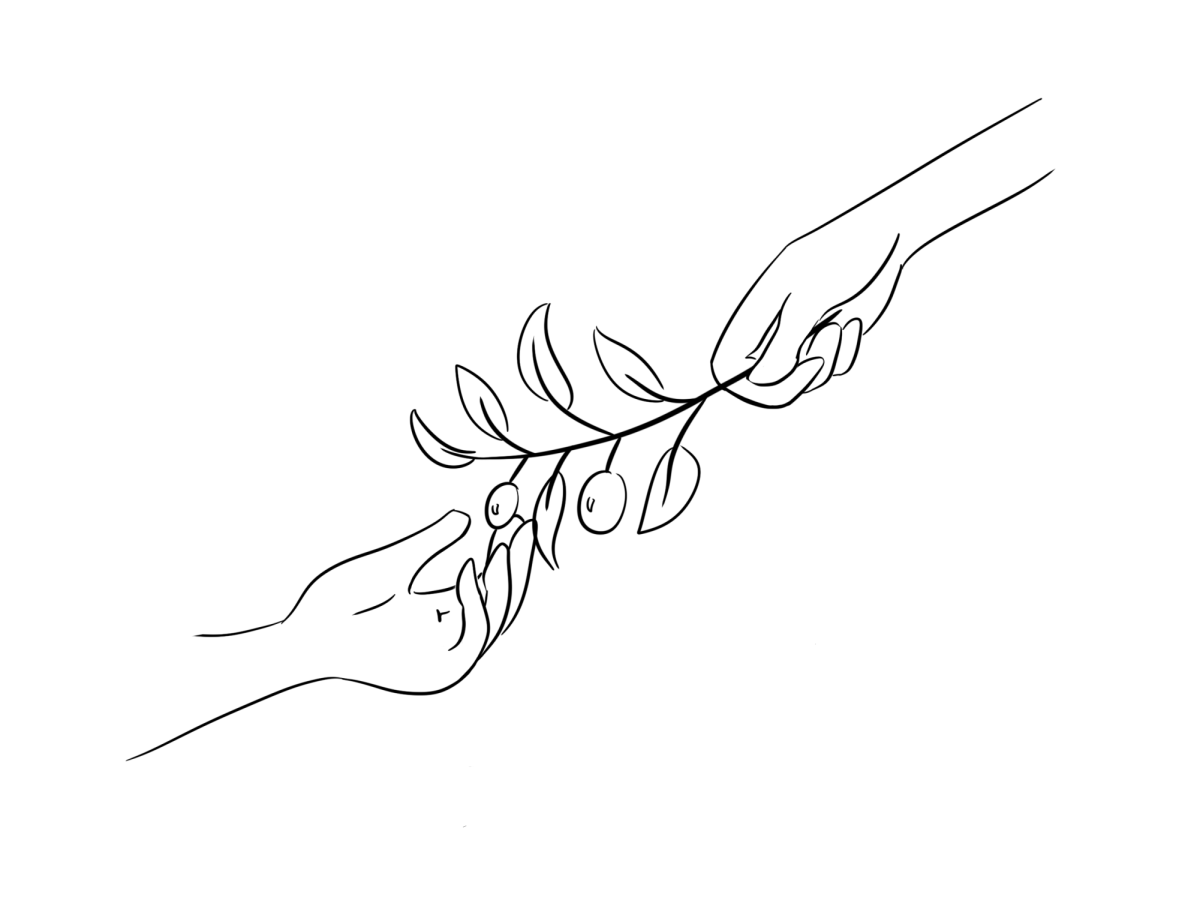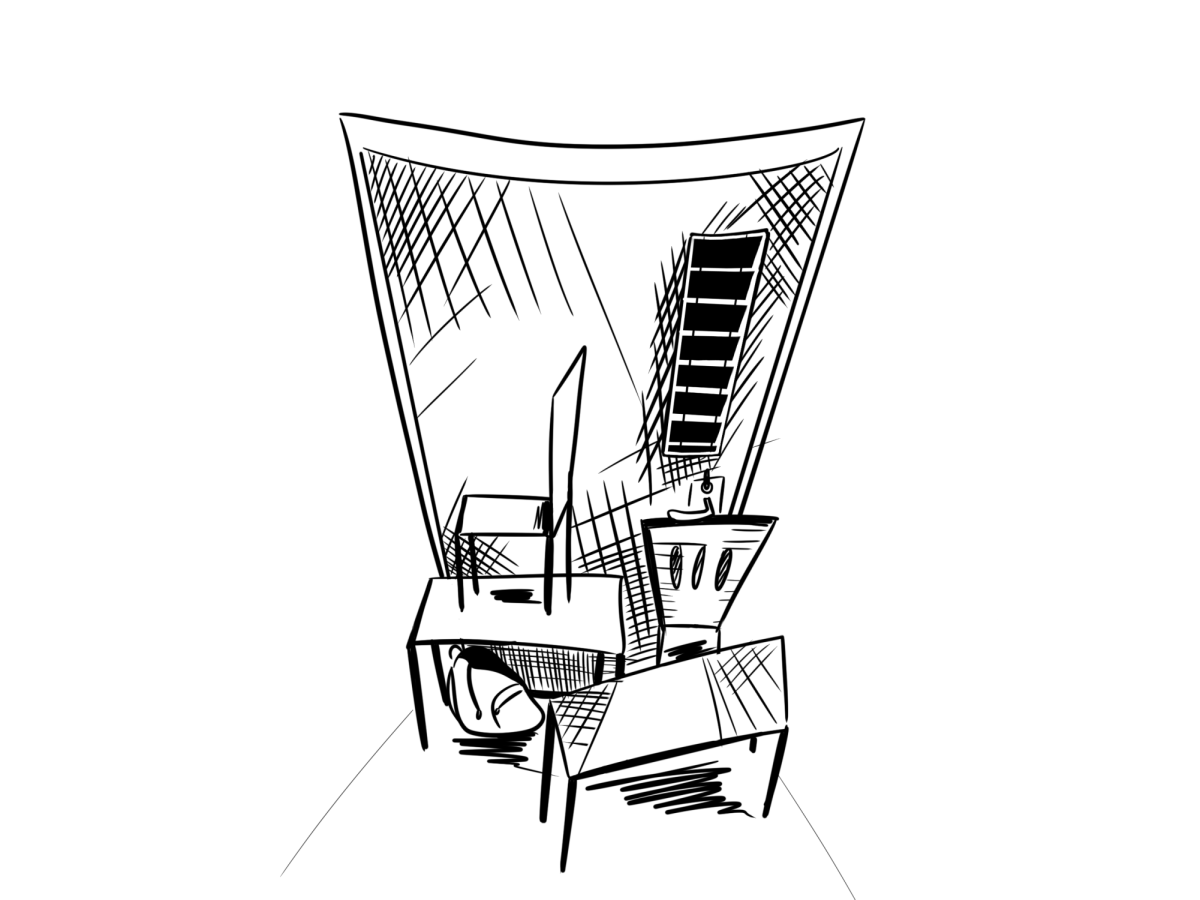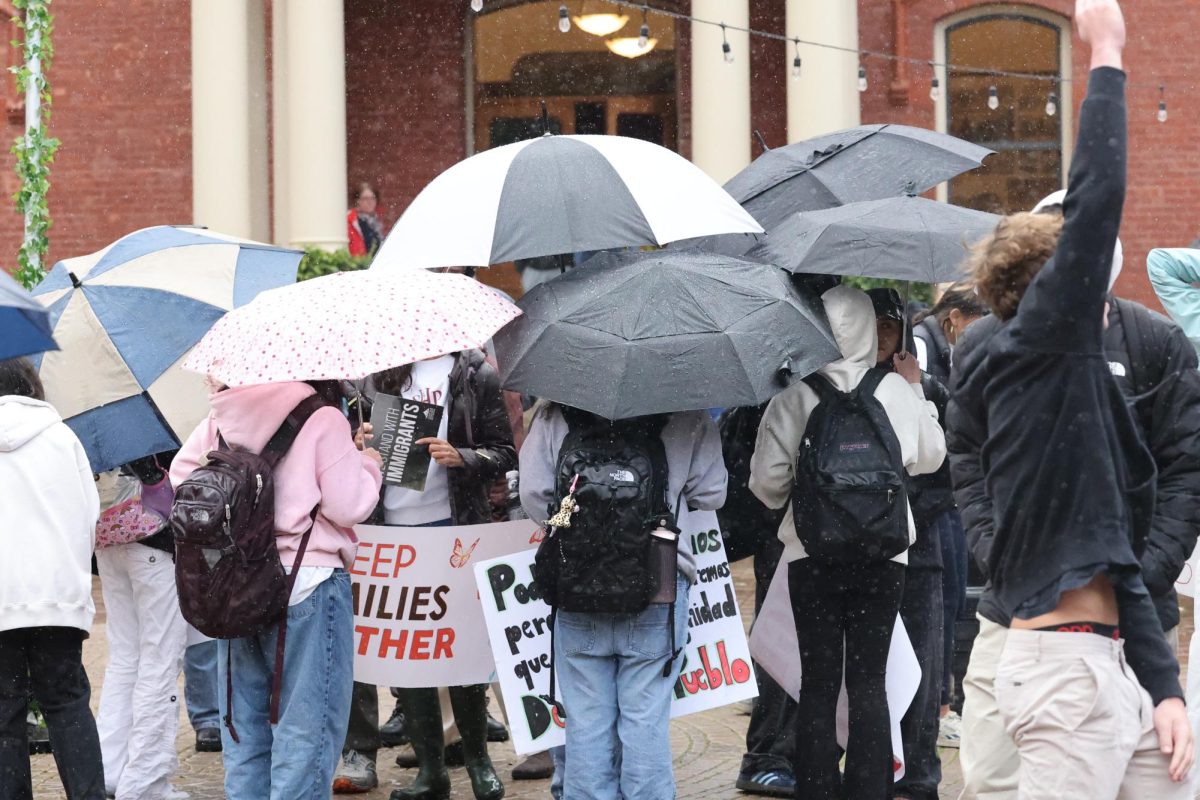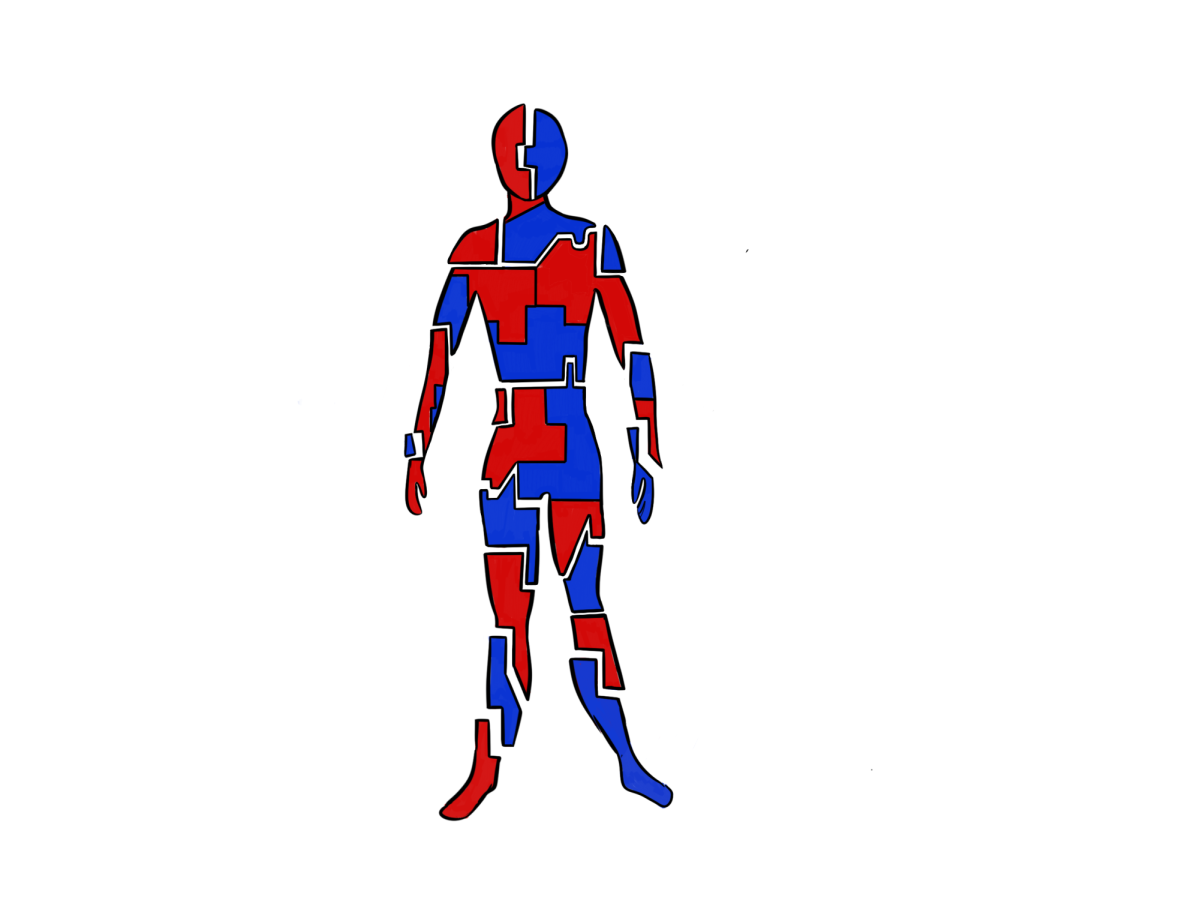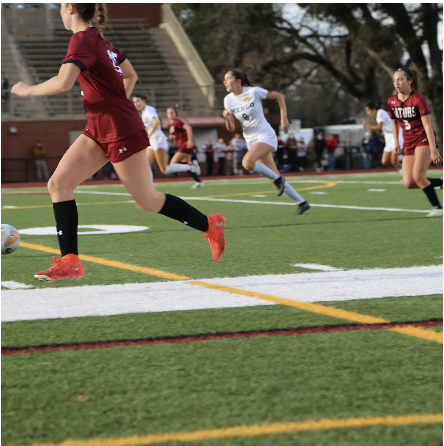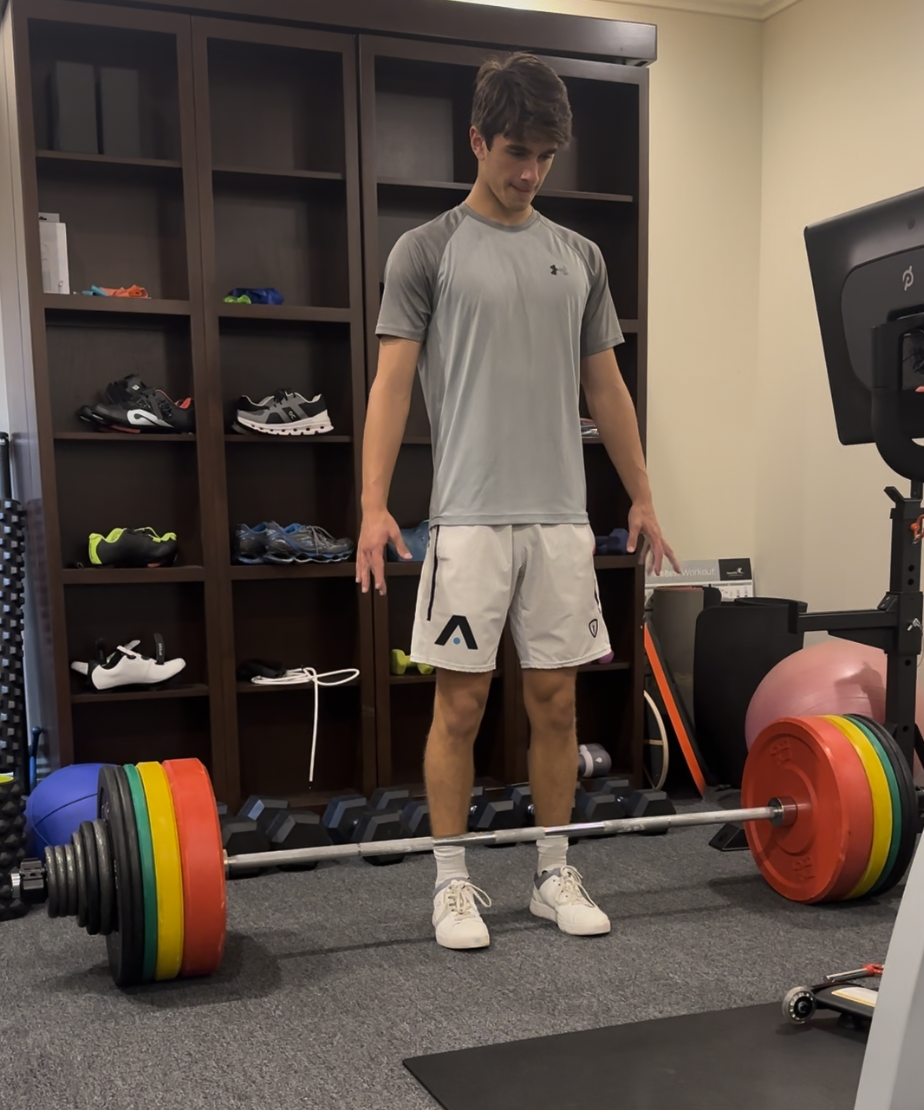Students can make the jump from a non-honors to honors math course at two points in their time at Sacred Heart: the transition from at-level Geometry to Algebra II Trig Honors and the transition from at-level Algebra II to Precalculus AB Honors. If you’ve had friends who’ve completed one of these two jumps, you’ve likely heard them grumbling and complaining about the difficulty of it. Rocco Vitale ‘26, who made the jump from Algebra II to Precalculus AB Honors this year, describes it as “war bro… I’ve been in the trenches.” This logically brings up the question of if students undergoing this transition are being given enough support, or if they are simply thrown into the deep end.
The prerequisites that determine who can undergo these transitions are established first by “digging [through] data to look at how students have done in a particular course,” as described by Assistant Principal of Curriculum & Academics and Math Teacher Mr. Jorge Reyes. Based on that data, Reyes claims that a proposal is given to a group of “department heads and some of the directors of programs” who “provide feedback,” and then the “final decision is made by the leadership team, which is the principal and assistant principal.” However, Math Teacher Mrs. Julie Tsutsui remarked that “since we’ve put” the 50% minimum grading policy “into place, the math department has not taken a hard look at prerequisites.” This indicates that the grade prerequisites could be somewhat outdated, setting some students up to fail, given that it’s easier to get an A or A- (the requirement to take Pre Calc AB Honors coming from Algebra 2) if you can’t score below a 50%. In addition to this, as inherent with any system where decisions are made based on past data, there exists the problem of how to establish a prerequisite when implementing something new. That’s the case with this year’s students making the transition from Algebra II, as this current group is the first to have used the CPM curriculum for the class. Tsutsui, when commenting on the effects of this, remarked that “last year’s students seemed to have a better command of foundational algebra content” and “seemed to be able to absorb things faster and move faster.”
Still, it’s not as if the grade prerequisite is the only factor looked at when the math department determines whether someone is able to make the transition from an at-level to an honors class. Math Department Head Ms. Leslie Huang detailed the many aspects that go into making this decision: “In either 2020 or 2021, we started a placement test…we talk to teachers… [and] some students work with our ASC departments and we talk to them as well. Occasionally we talk to science teachers…[we] look at how they do on their final exam… [and determine] the types of questions they get wrong.” There is clear, holistic thought and effort put into determining if a student is ready to make the transition to an honors class.
Yet, just because a student performs well in their at-level class, this does not mean that they’re going to be able to succeed in an honors class. Even beyond the content gaps that may exist between classes, Tsutsui, Huang, and Reyes all agreed that the biggest challenge for students was the depth and level of thinking required in an honors math class. Reyes specified that “if you’re in Algebra II, you’re used to seeing these types of problems, but if you’re in Algebra II [Trigonometry Honors], you see harder problems. And so [the brain] just develops — it’s like a muscle, right? Your brain just gets more developed.”
Additionally, even if someone is able to acclimate to the level of thinking required a couple months of into the course, they likely won’t get an A — which many Sacred Heart students consider unacceptable. Tsutsui commented on this mindset, articulating that “when you take a kid who gets an A or an A- at an at level class, and then you jump them into [an honors] course, I don’t think we really explain, or they really take into their hearts that you [might] be getting [a] B… and at Sacred Heart, that’s [not] enough, and so it’s problematic.” In order for this jump to truly work in its current state for students, the larger cultural issue of it being unacceptable to get anything less than an A at Sacred Heart would have to be fixed.
Thus, we again arrive at the question of how to support students in acclimating to this higher leveling of thinking, in addition to catching them up on any content gaps. Tsutsui stated that “there is no standard” on a year-to-year basis when it comes to what support is given, and that “what we do one year we might not do the next year.” Adding on to this, Reyes remarked that “because there’s such few students… we don’t have a dedicated program to provide.”
This year, students coming from Algebra II were required to do all of the optional homework assigned to Precalculus AB Honors students, and were sent an email with videos covering “topics that Algebra II Trig students were exposed to that were not covered in the Algebra II curriculum,” with topics including piecewise functions, power functions, even and odd functions, and more. Vitale said that “while we did also discuss these concepts in class, it would’ve been nice to also have some sort of extra-curricular programing” surrounding it. Charlie Van Dyke ‘26 also reported some trouble with the initial transition into the class, saying that he “came in thinking [he] would be good and [that] it wouldn’t be that challenging” and found his initial performance “incredibly disheartening,” indicating that the summer assignments didn’t adequately prepare him for what the class would be like. As Tsutsui put it, “a student is [not] an honors math student…and then, over the two short months of summer, all of a sudden they are.”
While ideologically, it seems simple to say that the math department should create a summer bootcamp course to address this issue, it is certainly not easy execute. Given that only select teachers are knowledgeable enough about the content and skills needed in order to prepare students, it’s unfair to ask them to give up their summers and time to refresh in order to teach a course. Huang said, “the tricky part is scheduling” with families often vacationing or busy in August, and teachers filling about “70% of [their work days] with meetings.” If summer isn’t a feasible time, then, logically, one would think that there should simply be meetings in the previous school year. However, this comes with its own challenges. This year, Huang started monthly lunchtime meetings for any students intending to transition to Geometry Honors, and only five students showed up, which is a small figure in comparison to the amount of students who expressed interest in this level shift in the latter portion of prior years.
Still, there has to be some way to address this issue — because it is an issue. As a result of the amount of unprepared students coming from Algebra II, Tsutsui said that she’s “having to change her content,” which, while not currently presenting issues, as no students in her current classes would be able to enroll in AP Calculus BC next year, may be problematic in the future. Another possible solution could be eliminating the ability to transition from non-honors to honors math classes altogether, as was the case several years ago. But, that would be unfair to students such as Carson Dolinko ‘26, who reported that the shift “[has] been fine,” and hasn’t been struggling in the course. Moreover, Van Dyke said that, even though he may get a B, he’s “overall enjoying the class,” and is glad that he made the transition.
I believe one way that the math department could address this would be through launching the transition between non-honors to honors classes earlier in the year, narrowing down eligible students then, and subsequently requiring students to attend meetings and do asynchronous work during the prior school year to develop necessary skills and meet particular content standards. It’s clear from the low attendance at Huang’s monthly meetings that simply requesting students to attend is not sufficient. Additionally, this would aid in decreasing the pool of students eligible to make this switch, weeding out individuals would not be ready to put in the work necessary to achieve a grade that they’re satisfied with, or stick with the course, instead of dropping it. While this would certainly not address all the issues present, it could certainly help mitigate a few. Another possible solution would be to reduce the number of Algebra II teachers, so that there are fewer discrepancies between what students are learning, though that comes with its own host of challenges.
It should be recognized that the math department is communicating between levels regarding what changes need to be made in order for these transitions to be as smooth as possible, and is consistently working on how to better align classes. It’s clear by the number of different changes tested that there are strong efforts in place attempting to assist students — unfortunately, there are inherent barriers to increasing success and providing extra support.
Categories:
From Non-Honors to Honors Math: A Treacherous Journey
0
More to Discover
About the Contributor
Brooke Soderbery ‘26, HeartBeat Editor-in-Chief, Website Lead


